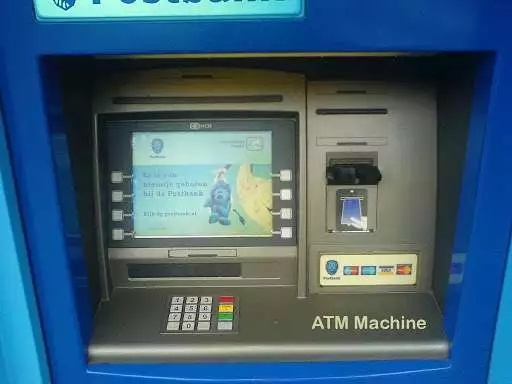To further promote a cash-less economy and enhance the collection of applicable government revenues, the Central Bank of Nigeria, last Tuesday, announced a review of the process for merchant settlement.
With effect from September 17, 2019, the CBN approved for banks to unbundle merchant settlement amounts, and charge applicable taxes and duties on individual transactions as stipulated by regulations.
The CBN, in a circular also announced the commencement of charges on deposits in addition to already existing charges on withdrawals.
According to the circular, the charges, which took effect from September 18, 2019, will attract 3 per cent processing fees for withdrawals and 2 per cent processing fees for lodgements of amounts above N500, 000 for individual accounts.
Similarly, corporate accounts will attract 5 per cent processing fees for withdrawals and 3 per cent processing fee for lodgements of amounts above N3 million.
The statement, however, disclosed that the charge on deposits shall apply in Lagos, Ogun, Kano, Abia, Anambra, and Rivers States as well as the Federal Capital Territory, while the implementation of the cash-less policy would take effect from March 31, 2020 nationwide.
The Dilemma
To Olusegun Aremu, this directive by the CBN is akin to a double jeopardy of rubbing salt to a fresh wound. Their recent experience with internet transaction with Guaranty Trust Bank, GTB, is still haunting his memory, and that of his daughter, Mary Taiwo.
While Taiwo was looking forward to her admission at a Federal University in one of the states in the South West, her father, had deposited N250, 000 in her savings account with GTB, domiciled at Ikotun-Egbe, Lagos State, to take care of necessary admission/resumption formalities.
Sorrow and Tears
While Taiwo was waiting for her admission letter, she did not anticipate that tragedy was also lurking in the corner. Precisely on Saturday, 20th of July, 2019, she received a text message supposedly from the bank on her phone to “upgrade some information on her account.” She innocently obliged and that was the genesis of a nightmare for the family. Within 18 hours, the entire N250, 000 in the account was transferred to various accounts.
A statement of account she obtained from the bank showed that on 20th July, the sum of N80, 000 was yanked off the account via POS/WEB Purchase Transaction 766634-134659-CASABELLA INTERNATIONAL. The next day, 21st July, there was an NIBSS Instant Payment of N5, 000 Outward to a First Bank of Nigeria, FBN Leramo AKinwumi Olamide. This was followed immediately of another N5, 000 to the same account.
The third transaction of the day was a double transfer of N50, 000 each NIBSS Instant Payment Outward to UBA/ Agbokun Ayoka. This was followed by another transfer of N20, 000; and N10, 000 respectively to the same UBA account of Agbokun Ayoka.
The last tranch of the fraud was a USSD transfer of N20, 000 to Amuokuyo Success Imengowen, leaving a paltry N2, 500 in the account before she actually realized what had hit her.
She and the family are yet to get over the trauma as the resumption time at the school draws closer. Her complaint at the bank merely received an email sympathizing with her and claiming the account will, from now, be put on extra security.
“You can see that the announcement by the CBN last Tuesday is just nothing but a sham. How can you say you are encouraging cashless banking when the process is riddled with fraud and scams?” Taiwo’s father told our correspondent last week.
Taiwo’s case is similar to the case of a Pastor in Sango-Ota, Ogun State, who lost about N180, 000 in his account with Polaris Bank in the same manner as Taiwo’s. The case of a young man whose $5,000 was sniffed from his account with a first generation bank in Ikorodu, Lagos State, was not less dramatic.
It actually took an invasion of the bank by hired thugs from the young man, which disrupted the operations in the bank, before the scam was reversed.
Banking on Fraud
According to the Nigerian Deposit Insurance Corporation, the insurer of all Deposit Money Banks in the country, a total of 37,817 fraud cases were reported in 2018 against 26,182 in 2017. The amount involved stood at ₦38.93 billion in 2018 compared to ₦12.01 billion in 2017.
The actual amount lost to fraud incidences in 2018, according to the NDIC stood at ₦15.15 billion as against ₦2.37 billion and ₦2.40 billion in 2017 and 2016, respectively.
The rising fraud incidences, investigation revealed, could be attributed to the increase in the sophistication of fraud related techniques such as hacking, cybercrime as well as increase in I.T related products and usage, fraudulent withdrawals and unauthorised credit.
The channels and instruments through which the reported frauds and forgeries were perpetrated indicated that Internet and technology-based sources of fraud had the highest frequency, accounting for 59.2% of fraud cases, and 42.83% of the actual total loss suffered.
Meanwhile, the number of ATM/Card-related fraud cases declined from 16,397 in 2017 to 10,063 in 2018. That may be attributed to improved security features of the card as well as security awareness on the part of users. Web-based fraud cases, however, increased from 7,869 in 2017 to 12,343 in 2018.
Enemy Within
Investigation also revealed that a total of 899 staff were involved in frauds and forgery cases in 2018 compared with 320 in 2017. The number of temporary staff involved in fraud was 394, accounting for 43.83% of the total number of staff involved in frauds.
This was followed by Officers and Executive Assistants’ cadre with 206 or 22.91%. Supervisors and Managers accounted for 119 or 13.24% of the total fraud cases.
Other Legs of Fraud
Not a few Nigerians also believe that the Card Maintenance Fee charged by banks is fraud in another name. In the first six months of this year alone, 13 banks raked in 39.5 billion naira from the exercise.
There are currently 27 banks in Nigeria with government licenses, harbouring 112,005,516 accounts as at 31st December, 2018, through recent drive to enhance financial inclusion as well as other social welfare schemes.
As at December 2018, Nigeria’s Total Deposits was reported at 28.7 trillion naira out of which FUGAZ (which is an acronym for FBNH, UBA, GT Bank, Access Bank and Zenith Bank) now have a cumulative total customer deposit of N14.1 trillion.
Remedies
The number of temporary staff involved in fraud and forgery cases has consistently been on the increase. Forensic and security experts agree that the banks and regulators need to address the problem of contract/temporary staff in terms of welfare and permanent employment in view of the risk their current status poses to banks operations. Furthermore, they advise that banks should strengthen their internal controls and validate their recruitment process.
Long Arm of the Law
The Act establishing the Economic and Financial Crimes Commission, EFCC mandates it to combat financial and economic crimes. The Commission is empowered to prevent, investigate, prosecute and penalise economic and financial crimes and is charged with the responsibility of enforcing the provisions of other laws and regulations relating to economic and financial crimes including:
Economic and Financial Crimes Commission Establishment act (2004); The Money Laundering Act 1995;The Money Laundering (Prohibition) act 2004; The Advance Fee Fraud and Other Fraud Related Offences Act 1995;
The Failed Banks (Recovery of Debts) and Financial Malpractices in Banks Act1994;The Banks and other Financial Institutions Act 1991; and
Miscellaneous Offences Act
In 2016 alone, the EFCC secured the convictions of 182 fraudsters as follows: Abuja, 38; Lagos, 62; Kano, 34; Enugu, 15; and Port Harcourt, 33
Defending the Rot
Despite Nigerian banks’ huge investment on technology, it is alarming that most banks are still very vulnerable to attacks and financial frauds. None of the banks is ready to admit that customers’ money in their custody is not safe. When confronted by our team on what their banks are doing to secure their customers savings, they tried to dodge the question either by out rightly failed to pick calls or respond to messages sent to their phones.
Some of them also do not want to be quoted claiming that there are “fraudsters everywhere and no matter how hard bankers tried, criminals will always find a way to perpetuate financial crimes”.
For instance, Idoko Negedu, who is said to be the Head of Media, Guaranty Trust, after series of failed attempts to seek his views finally agreed to meet NGIJ team last Friday.
However, when the team got to his Lagos Island office, he said he was not willing to meet more than one person who had earlier called to schedule the appointment with him. All efforts to convince him that two others are members of the team on the assignment, proved abortive as he maintained that he was not willing to grant media interviews, claiming not to be the spokesman of the bank.
Idoko who wears an apparently arrogant look, frowned at some of the questions posed to him, claiming that the journalists “seem to be interested in publishing the report rather than cooperating with the bank.”
However, a top official of Ecobank who would not like his name to be mentioned stated that “technology is evolving and as the banks device new technology, the criminals create new ways to beat it”.
The Ecobank official told NGIJ team that “I’m surprised hearing two people can be receiving alerts from a single account.”





